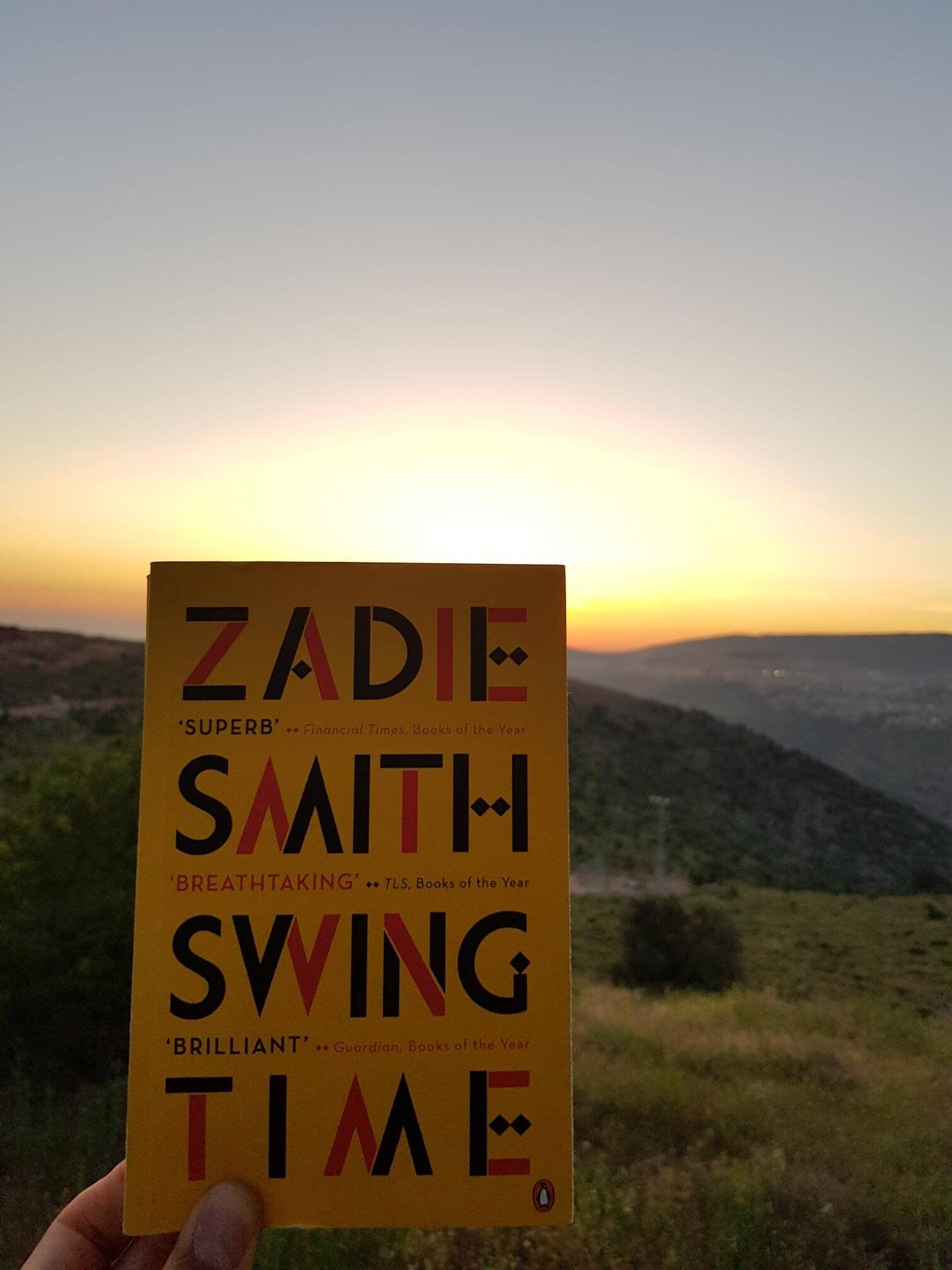
Dancing to the Music of their times in Zadie Smith’s Swing Time
Book Review: Swing Time by Zadie Smith
“How do we become who we are?
Can we ever truly escape our origins?
Must we dance to the music of our time?”
Ever since reading Zadie Smith’s debut novel “White Teeth” and being in awe from it, I’m hungry for more. It’s never an “easy” read. She writes about topics that touch you to the core. Smith is always full of new insights and points of view in a way that can totally change your perspective on things.
The story begins with a dramatic ending, keeping the reader on her toes, yet with the knowledge that there is not an easy or classic happy-end here. And then we start from the very beginning – from childhood – with this close and somewhat dangerous friendship between two little girls. They meet in dance class and this is their joint passion, yet what really draws them together is the specific tone of their skin – brown, half/half. Each one of them has one white parent and one black parent. I felt that the description of these initial, formative years was the most powerful in the book. What does it mean to grow up in this neighborhood in London, each girl with her own story of family, origins, survival and trying her best to succeed in challenging circumstances? Where can such a start in life lead these girls and what can their future possibly look like?
Another part of the book deals with an interesting topic of international aid. This part was detailed and described from many different angles, thus making it an eye-opener for me. In the book, a relatively diverse group of people, in many ways from the “privileged Western world”, no matter the color of their skin, set out to do “good” through acts of charity and by establishing a school for girls in West Africa. This practice in itself raises so many dilemmas and ethical questions. Zadie Smith doesn’t simplify things for us – she offers one opinion, then contradicts herself with yet another perspective and then one more, leaving the reader with deep thoughts and the task to reconcile it all.
The book introduces a vast mixture of topics, moving from the personal to the global, raising discussions of race and class, wealth and charity, opportunities we might receive in life as well as dead-ends. I highly recommend this book.
Quotes from the book:
“One night I dreamt of the Cotton Club…In my dream we were all elegant and none of us knew pain, we had never graced the sad pages of the history books my mother bought for me, never been called ugly or stupid, never entered theatres by the back door, drunk from separate water fountains or taken our seats at the back of any bus. None of our people ever swung by their necks from a tree, or found themselves suddenly thrown over-board shackled in dark water – no, in my dream we were golden! No one was more beautiful or elegant than us, we were a blessed people, wherever you happened to find us, in Nairobi, Paris, Berlin, London or tonight, in Harlem.” (page 100).
“Carrapichano I didn’t know very well and the only time we’d spoken before I’d made a fool of myself. It was on the plane to Togo…’What’s it like?’ I’d asked, leaning over him, looking out of the porthole window, and meaning, I must admit, ‘Africa’.
‘I have not been’, he said coldly, without turning around.
‘But you practically live here – I read your resume.’
‘No, Senegal, Liberia, Cote d’Ivoire, Sudan, Ethiopia, yes – Togo, never.’
‘Oh, well, you know what I mean.’
He’d turned to me, red-faced, and asked: ‘If we were flying to Europe and you wanted to know what France was like, would it help if I described Germany?’” (page 194).






